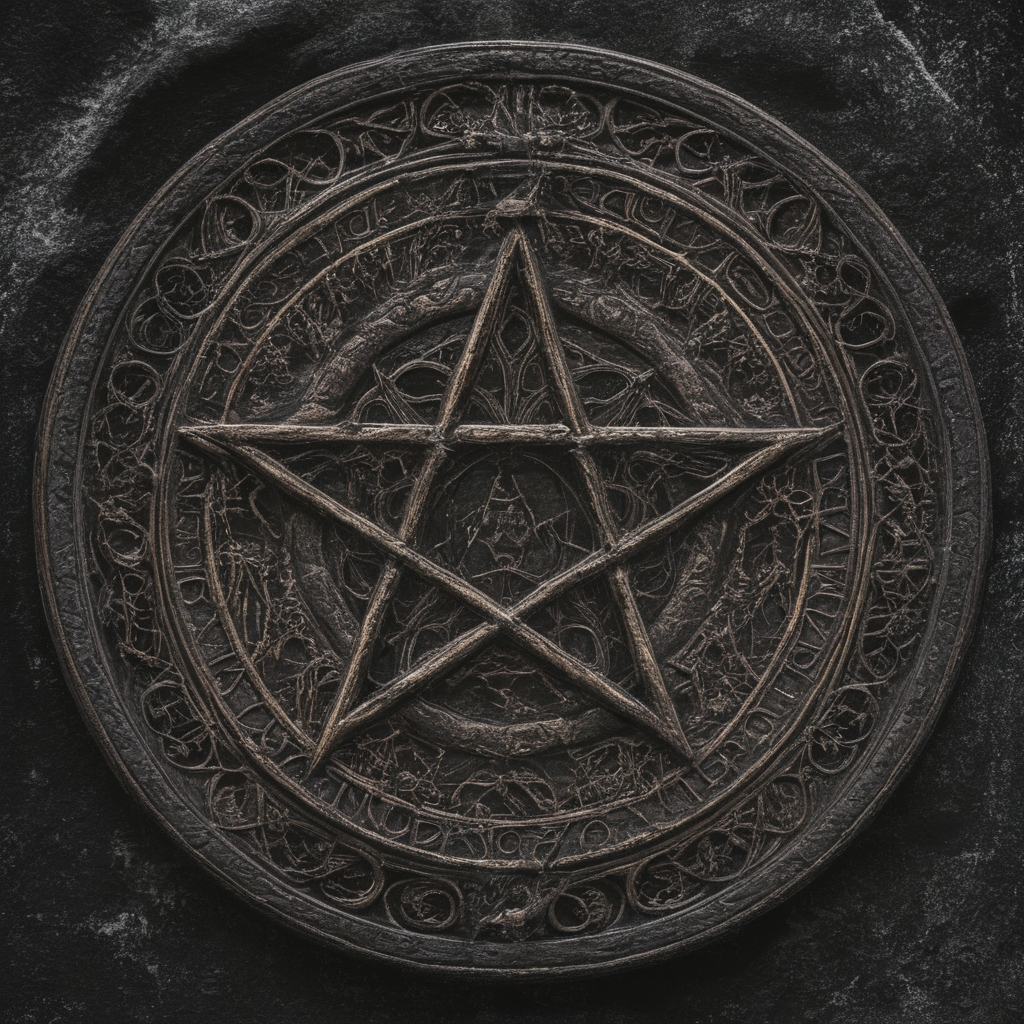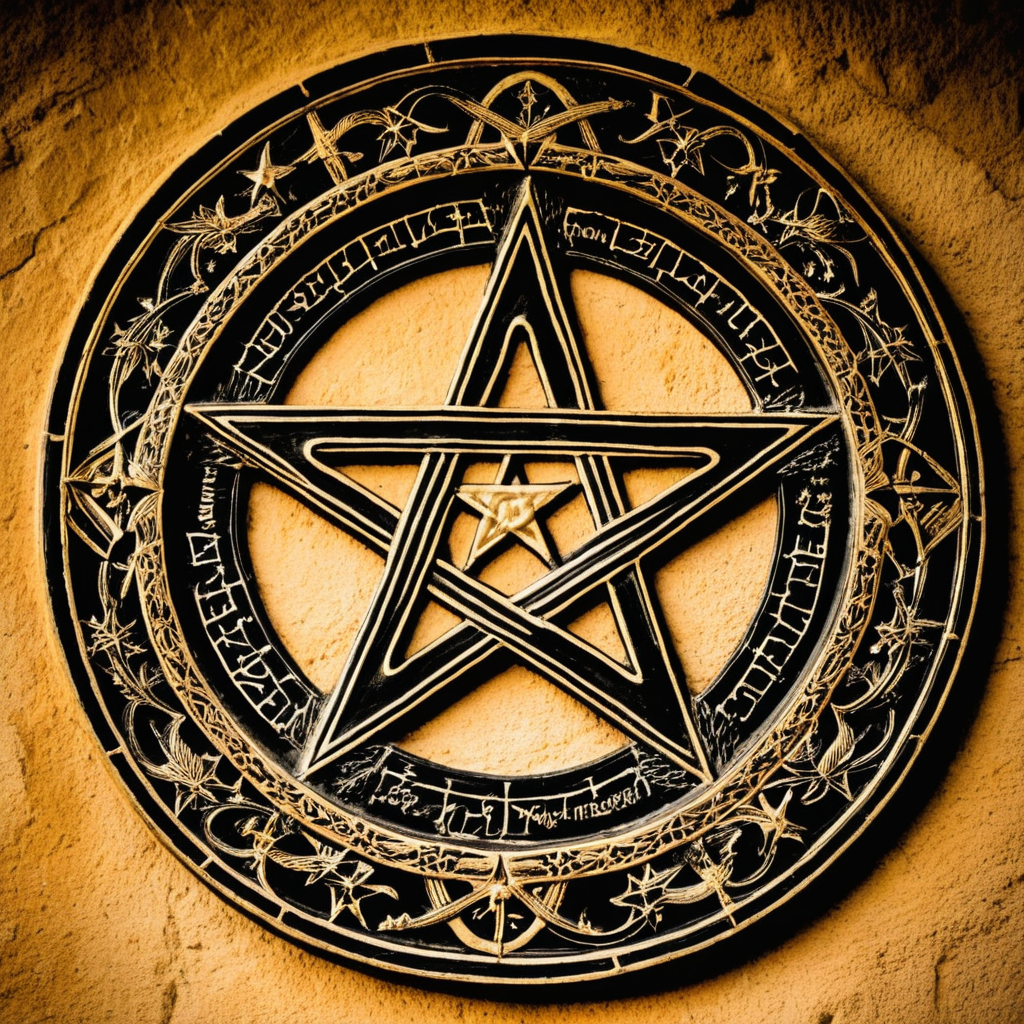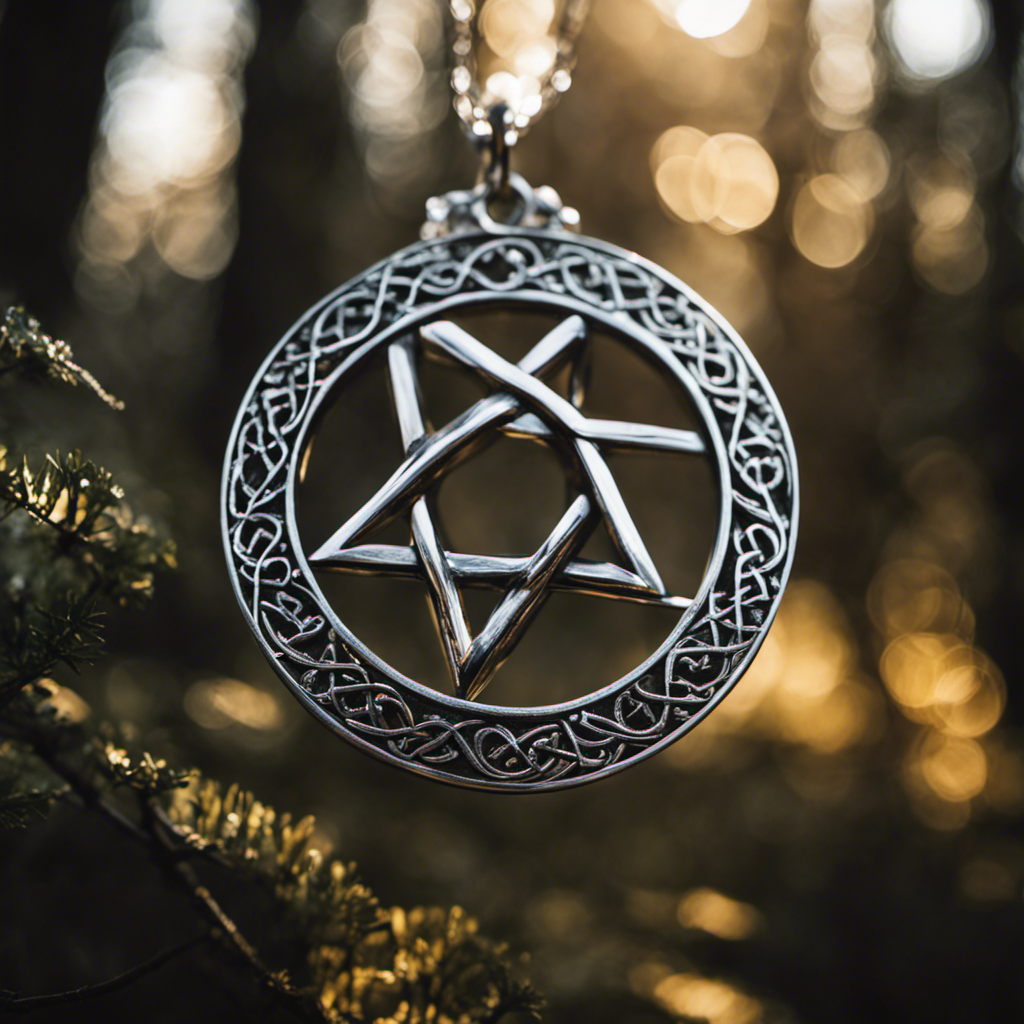Have you ever wondered about the hidden meanings behind symbols?
Imagine this: You stumble upon a pentacle pendant, and curiosity takes hold. What does it truly symbolize?
In this article, we will guide you through understanding the symbolism of the pentacle. We’ll explore its historical origins, cultural significance, and interpretations in different religions.
Unveil the symbolic elements that make up this powerful emblem and discover how modern uses have led to misconceptions.
Get ready to deepen your understanding of the pentacle’s profound meaning.
Historical Origins of the Pentacle

The historical origins of the pentacle can be traced back to ancient civilizations. It has been a symbol of great significance for centuries, representing various aspects of spirituality and belief systems.
Ancient cultures such as the Mesopotamians, Egyptians, and Greeks all incorporated the pentacle into their religious practices and rituals. In these ancient origins, the pentacle was often associated with protection, power, and connection to the divine. It was believed to ward off evil spirits and bring good luck to those who wore or displayed it.
The intricate designs used in creating the pentacle reflected the deep reverence these civilizations had for symbolism and its ability to convey profound meanings. Understanding the historical roots of this symbol helps us appreciate its enduring importance in different cultures throughout history.
Cultural Significance of the Pentacle
Contractions are commonly used to express the cultural significance of the pentacle. The pentacle holds great importance in various spiritual beliefs and occult practices. It is a symbol that represents the five elements: earth, air, fire, water, and spirit. These elements are believed to be essential components of creation and existence.
The pentacle’s circular shape signifies unity and wholeness, while its five points represent balance and harmony between these elements.
In spiritual beliefs, the pentacle is often seen as a protective talisman or an emblem of one’s connection with nature and the divine. It is regarded as a symbol of power, wisdom, and spiritual growth. In occult practices such as Wicca or Paganism, the pentacle is frequently used in rituals to invoke elemental energies or to draw upon their influence for magical purposes.
Overall, understanding the cultural significance of the pentacle can provide insight into different belief systems and their reverence for nature, spirituality, and mystical practices.
Interpretations of the Pentacle in Different Religions

Explore the diverse interpretations of the pentacle in different religions to gain a deeper understanding of its significance.
The pentacle, also known as the five-pointed star, holds various meanings across different spiritual traditions.
In Wicca, it represents the four elements – earth, air, fire, and water – with the fifth point symbolizing spirit or divinity.
For some practitioners of Neopaganism, the pentacle signifies protection and acts as a talisman against negative energies.
In Christianity, the pentacle is associated with the five wounds of Christ and represents his sacrifice on the cross.
Meanwhile, in Hinduism, it is seen as a symbol of unity and harmony among body, mind, soul, and senses.
Each interpretation highlights the spiritual significance of the pentacle within its respective religion, offering valuable insights into its rich symbolism and meaning.
Symbolic Elements of the Pentacle
Different religions have diverse interpretations of the pentacle, each highlighting its symbolic elements. The pentacle is a powerful symbol with esoteric meanings that vary across different belief systems.
In Wicca, for example, the five points of the pentacle represent the elements: earth, air, fire, water, and spirit. This symbolizes balance and connection to nature. In some pagan traditions, it represents protection and spiritual transformation.
The pentacle is often used in ritualistic practices as a tool for invoking or evoking energies during ceremonies and spells. It serves as a focal point for concentration and meditation. Its presence can create a sacred space where practitioners can connect with their spirituality and channel divine energy.
Understanding these symbolic elements can deepen your appreciation for the significance of the pentacle in various religious contexts.
Modern Uses and Misconceptions Surrounding the Pentacle
One common misconception surrounding the pentacle is that it is exclusively associated with satanic worship when in reality, it has a wide range of modern uses and interpretations. Modern misconceptions often stem from a lack of understanding about the symbol’s true meaning.
The pentacle, with its five-pointed star enclosed in a circle, represents various aspects of nature and spirituality. Many people use it as a protective talisman or amulet to ward off negative energies. Additionally, practitioners of Wicca and other pagan traditions use the pentacle as a symbol of their faith and connection to the natural world.
Furthermore, the pentacle can also be seen as a representation of balance and harmony between the elements – earth, air, fire, water, and spirit.
Conclusion
In conclusion, the pentacle holds a rich history and cultural significance that is often misunderstood. It has been interpreted differently in various religions, representing concepts such as protection, spirituality, and balance.
Its symbolic elements of earth, air, fire, water, and spirit make it a powerful emblem of connection to nature and the divine.
Despite modern misconceptions surrounding the pentacle, it continues to be used by many for spiritual practices and rituals. As the old adage goes, “Don’t judge a book by its cover,” it’s important to truly understand the symbolism behind the pentacle before making assumptions or passing judgment.

